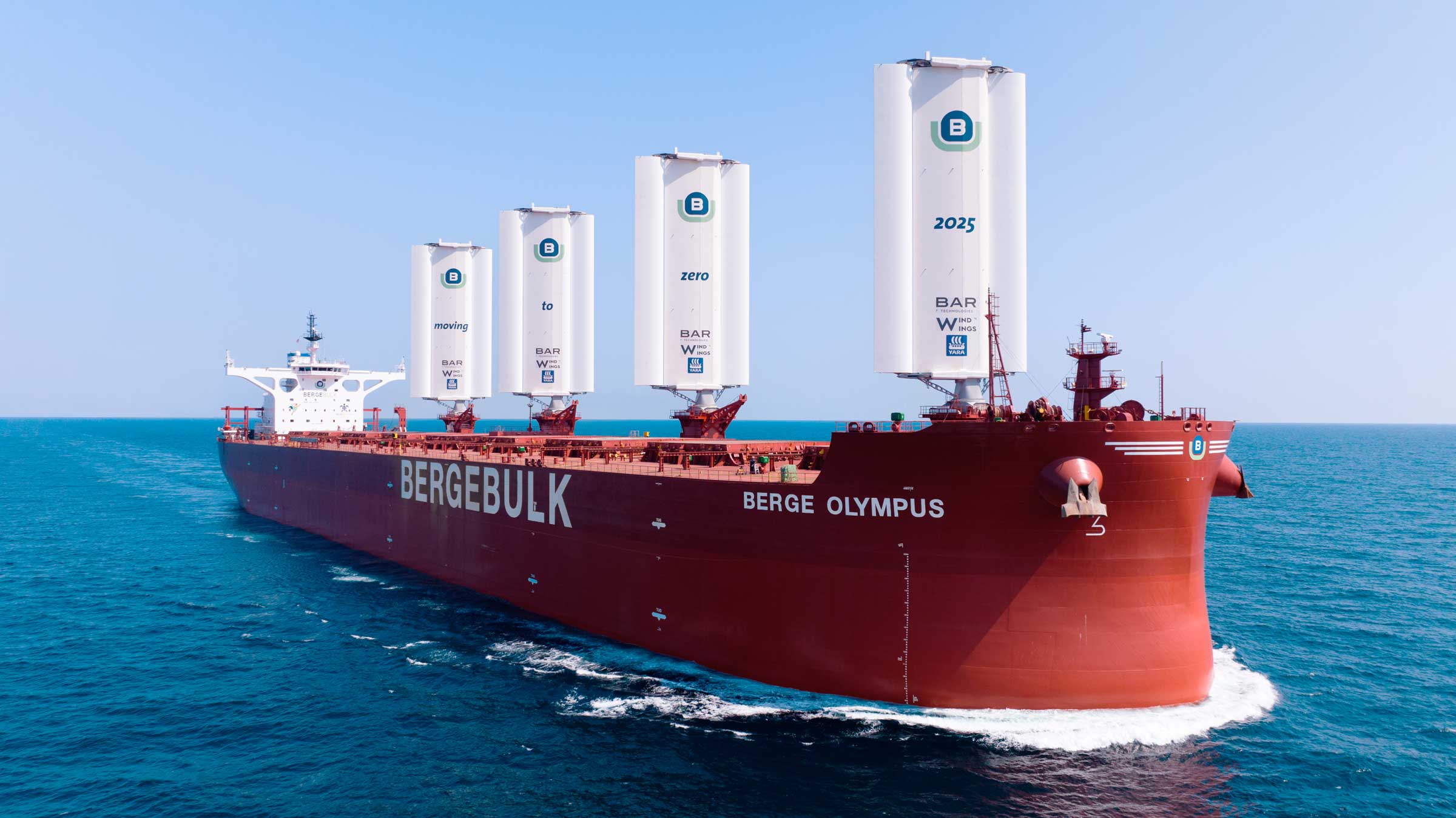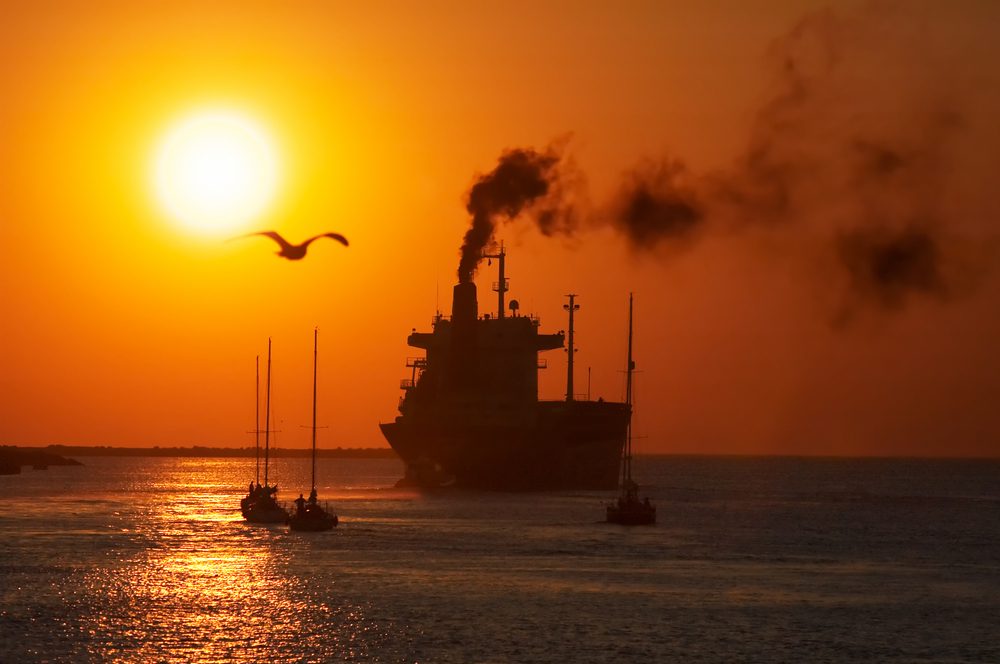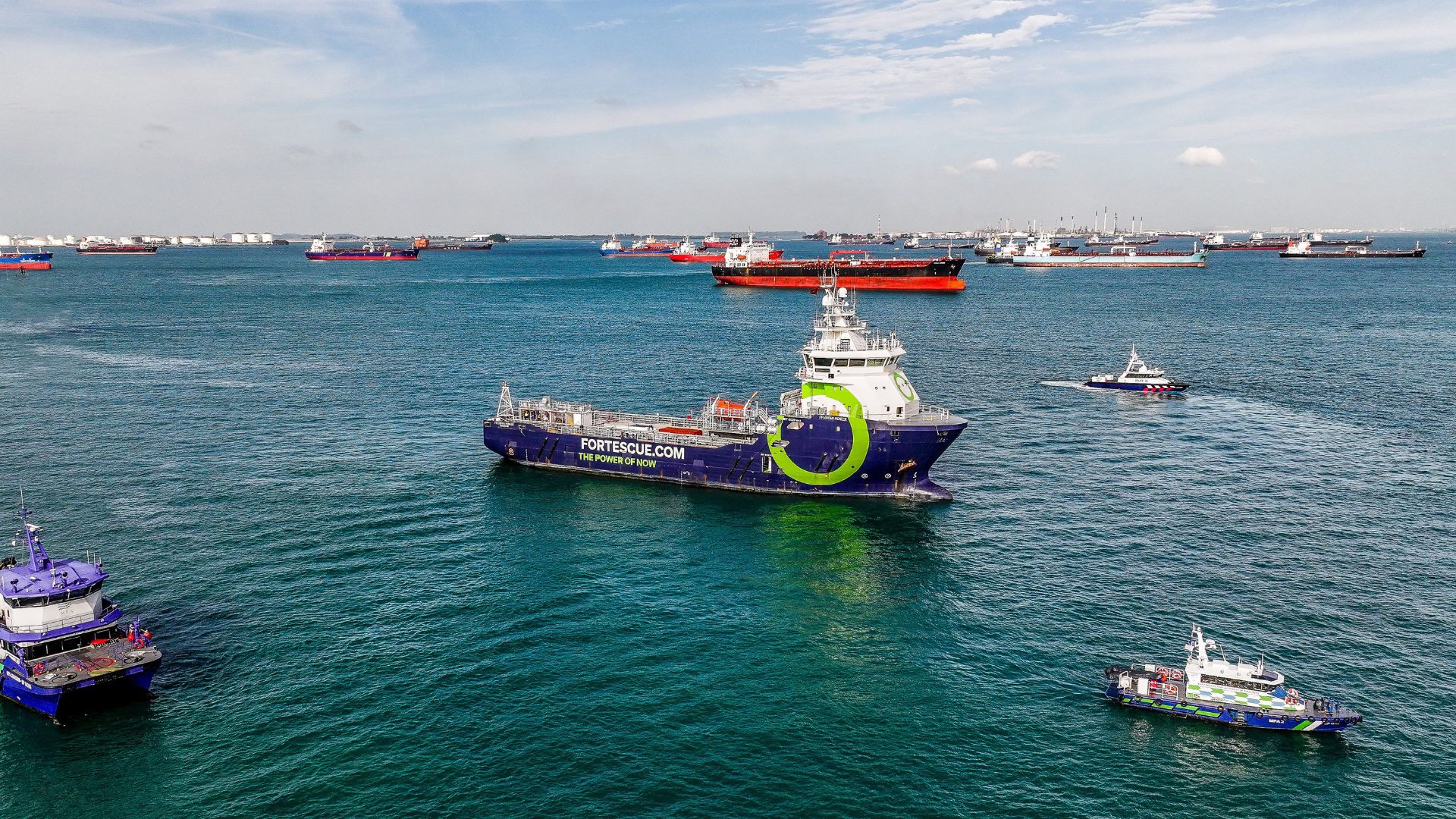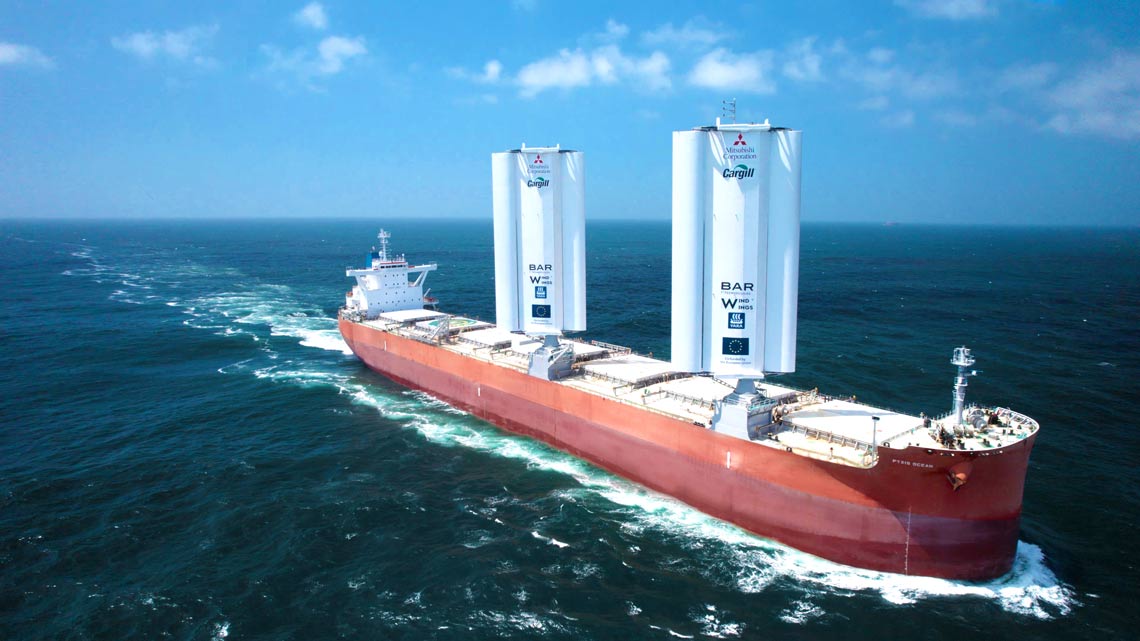Berge Bulk, a leading dry bulk ship owner, has announced the launch of a newcastlemax bulk carrier retrofitted with four WindWings, a technology that uses wind power to reduce fuel consumption and emissions.
The M/V Berg Olympus, fitted with four BARTech WindWings by Yara Marine Technologies, will navigate between Brazil and China, known for favorable wind conditions. The steel and composite-glass rigid sails, measuring 20 meters in width and 37.5 meters in height, can be adjusted to optimize the ship’s fuel consumption. In fact, the total surface area of the four wings—3,000 square meters—is more than three times the surface area of the wings of the world’s largest passenger aircraft, the A380 airplane.
By utilizing wind power, these aerodynamic sails can save an estimated 6 tonnes of fuel per day, or approximately 20% of its fuel consumption, and reduce CO2 emissions by approximately 19.5 tonnes per day on average.
The installation on the Berge Olympus follows the debut of the WindWings technology on the M/V Pyxis Ocean, an 80,000-ton bulk carrier chartered by Cargill. The Pyxis Ocean, owned by MC Shipping, a subsidiary of Mitsubishi Corp., recently completed its maiden voyage from Shanghai to Singapore after the installation of two WindWings.
In a press statement, Berge Bulk described the Berge Olympus as “the world’s most powerful sailing cargo ship.”
The installation is part of Berge Bulk’s ambitious goal of becoming carbon neutrali by 2025. The company’s four-pillar decarbonization plan, known as the Marshall Plan after CEO and founder James Marshall, focuses on improving fleet efficiency, leveraging the latest maritime technology, piloting new fuels, and investing in carbon capture.
“From 2008 until today, we have achieved a remarkable 46% reduction in our CO2 emissions per tonne mile, already surpassing the 2030 IMO target for reducing carbon emissions intensity. There’s still so much to do as we accelerate the transition to new fuel in the zero-carbon future,” said Marshall.
Thomas Koniordos, CEO of Yara Marine Technologies, emphasized the potential of wind-assisted propulsion in achieving the industry’s goal of net-zero emissions.
“Wind-assisted propulsion has the potential to offer immediate long-term solutions for shipping’s pathway to Net Zero. We are proud to work with trusted partners such as Berge Bulk and ensure that this technology can be scaled and manufactured to shipping’s high standards, ensuring a robust and resilient supply chain that can meet industry demand,” said Koniordos.
Berge Olympus has been retrofitted with a shaft generator system, driven by the main engine, that supplies electric power and eliminates the need for operating auxiliary engines at sea. Berge Bulk said this ground-breaking installation concludes a program that saw multiple vessels retrofitted with the technology.
Editorial Standards · Corrections · About gCaptain

 Join The Club
Join The Club











